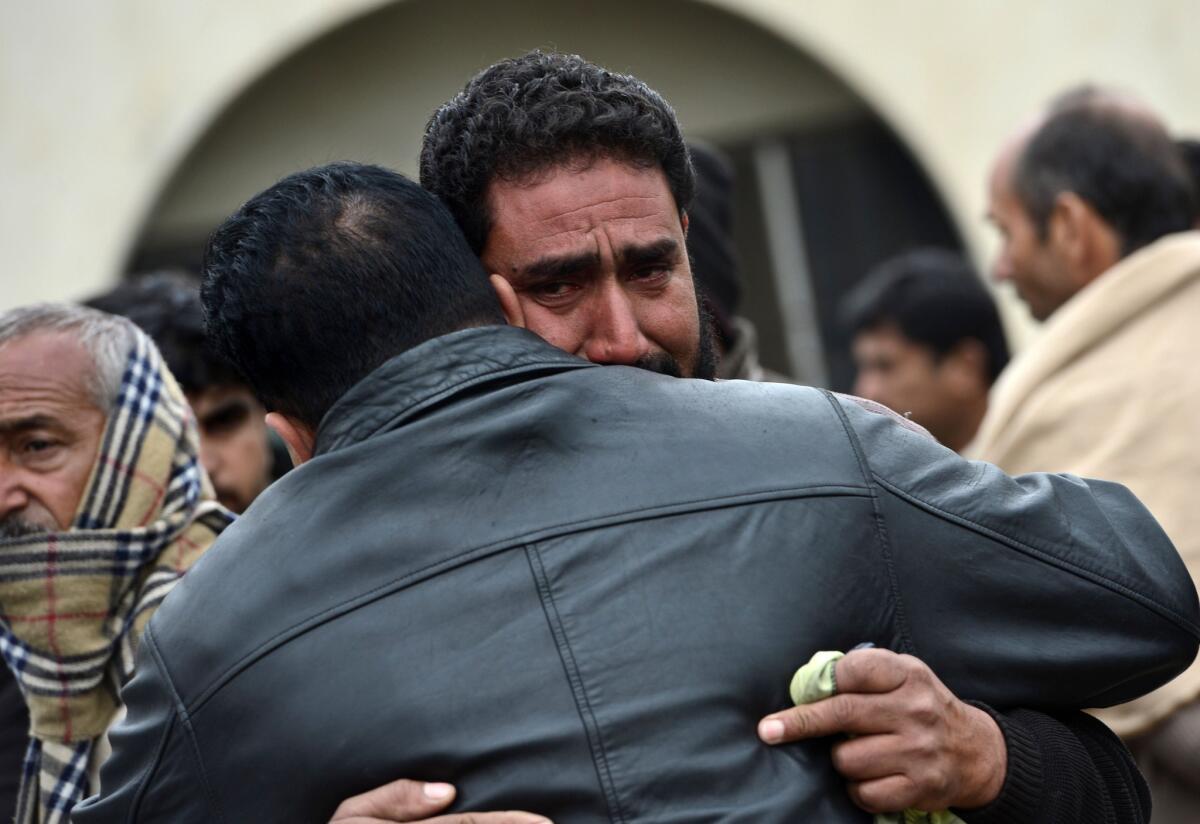Attack on Pakistan courthouse kills 11 despite cease-fire

ISLAMABAD, Pakistan – In a rare assault on the heart of the Pakistani capital, militants stormed a district court complex in Islamabad on Monday, unleashing gunfire and explosives that killed at least 11 people, including a judge, and wounded 25 others.
The attack marked a brazen rejection of a cease-fire declared over the weekend by the central leadership of the Pakistani Taliban, Pakistan’s main Islamist organization. A little-known faction claimed responsibility for the attack, saying it opposed the Pakistani Taliban’s participation in peace talks with the Islamabad government.
Police and eyewitnesses at the courthouse, which was littered with shattered furniture and human remains hours after the attack, could not agree on the number of assailants, but many people reported seeing at least two gunmen who opened fire for several minutes before being confronted by police, and then detonated suicide vests.
An initial report by police and intelligence agencies said there were a total of four attackers, all in their early 20s, but that two fled the scene following the suicide blasts.
One suicide bomber entered a courtroom, fired an automatic rifle, hurled a hand grenade and then blew himself up, said a police official who wasn’t authorized to be quoted by name.
Police speculated that the judge in the courtroom, Rafaqat Awan, was a target because last April he rejected a petition to bring murder charges against Pakistan’s former military ruler, Pervez Musharraf, for ordering the bloody 2007 army takeover of Islamabad’s Red Mosque, which had been occupied by Islamist militants. Awan died in the attack, authorities said.
The Pakistani Taliban splinter group, known as Ahrarul Hind, said it attacked the court because it rejected the country’s secular legal system.
“Our struggle will continue until sharia [Islamic] law is implemented in Pakistan,” a spokesman for the group, who identified himself as Asad Mansoor, said in a statement.
Police and eyewitnesses said that the attackers were equipped with automatic rifles and hand grenades, and entered the courthouse complex around 8:45 a.m. with shawls shrouding their faces.
Malik Bilal, a lawyer who witnessed the attack, said two young men with trimmed beards and long hair, chanted, “Allahu Akbar,” or “God is great,” before opening fire for several minutes. He then heard several blasts, which filled the complex with smoke.
“Everybody was running to find some safe place. There was great panic,” Bilal said.
The loosely organized Pakistani Taliban has been waging a years-long insurgency aimed at toppling the secular government in Islamabad and instituting sharia law, but the group’s central leadership last month began the first major attempt at peace talks, appointing representatives to negotiate with the government. The talks were suspended after militant factions continued to carry out attacks.
Pakistani security forces have stepped up airstrikes against suspected insurgents in the country’s lawless tribal regions. On Saturday, apparently under pressure from the military campaign, the Pakistani Taliban’s leadership declared a one-month cease-fire in a bid to restart talks.
The organization distanced itself from Monday’s bombing. “We condemn the attack on the court in Islamabad,” the group’s spokesman, Shahidullah Shahid, said in a statement, adding that it remained committed to the cease-fire.
Following the attack, Prime Minister Nawaz Sharif called a meeting of top security officials at which army leaders argued that the Pakistani Taliban had used the cease-fire as a delaying tactic, according to individuals who requested anonymity to discuss the sensitive talks.
“A cease-fire and terrorist attacks cannot work at the same time,” Defense Minister Khawaja Asif said in an interview with Pakistani television.
Retired Brig. Mahmood Shah, former chief of security for the tribal areas, said the attack bore the hallmarks of the Pakistani Taliban, known in Urdu as Tehreek-e-Taliban Pakistan, or TTP.
“The TTP has shown in the past that it used cease-fires only as a strategy,” Shah said. “They have using the cease-fire to strengthen their network and carrying on attacks on their targets. They have been making this government a fool.”
Twitter: @SBengali
Sahi is a Times special correspondent. Staff writer Bengali reported from Washington.
More to Read
Start your day right
Sign up for Essential California for news, features and recommendations from the L.A. Times and beyond in your inbox six days a week.
You may occasionally receive promotional content from the Los Angeles Times.







